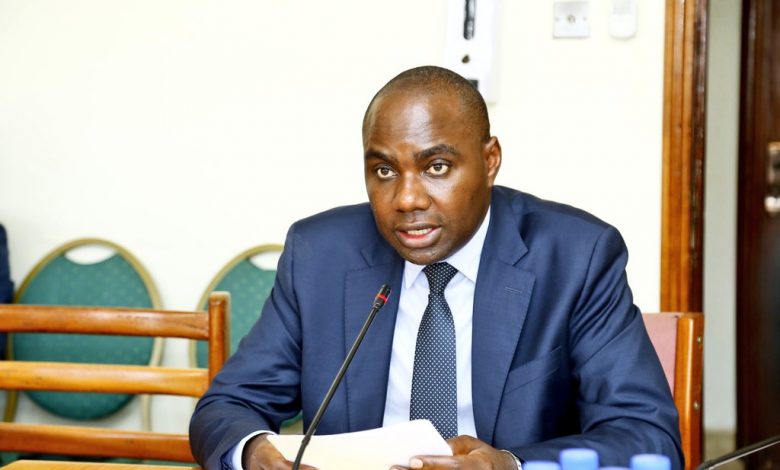Parliament cautioned against channeling motor third party funds to the health ministry
The call was made by Henry Musasizi, Minister of State for Finance, while appearing before the House Committee on Health, where a proposal was made that the money collected from motorists through third-party insurance be channeled straight to the health facilities instead of going to the insurance companies.

The Ministry of Finance has cautioned Parliament against recommending the allocation of all money collected from the Motor Third Party to the Ministry of Health to treat road crash victims, saying the creation of separate funds within the government would make it difficult to manage.
The call was made by Henry Musasizi, Minister of State for Finance, while appearing before the House Committee on Health, where a proposal was made that the money collected from motorists through third-party insurance be channeled straight to the health facilities instead of going to the insurance companies.
“As a principle and a position of the Ministry of Finance, we should manage all public funds in a consolidated manner; we collect all the money, put it in a basket called consolidated fund, and then meet Government obligation as appropriated by government. We are against sub-division because it becomes difficult for us to run a treasury that is scattered: funds for health, funds for water, funds for HIV, and funds for roads. You can see, it makes our work difficult,” said Musasizi.
The Minister informed the Committee that in the 2022/23 financial year, UGX 32 billion was released from third-party insurance. Out of this, Stamp Duty amounted to UGX12 billion, and Valued Added Tax (VAT) was UGX 3 billion.
The practice has been that the money collected through Stamp Duty and VAT form part of Government revenue, which goes to the Consolidated Fund to finance the national budget while the balance remains with the insurance companies to compensate those who would get injured through road accidents.
“What we can welcome is if there is inadequate funding, can we argue along these lines, can we get ways of funding health better if there is a gap which must be closed? This money we are collecting, you can realise, Stamp Duty and VAT is only contributing Shs15Bn if we said we would give you UGX 15 billion, my question is, what would Shs15Bn do compared to the overall health budget?” added Minister Musasizi.
The Minister’s remarks were in response to a concern raised by Committee Chairperson Dr Charles Ayume as the meeting discussed how money collected through motor third-party insurance can be used to treat road crash victims and the criteria that can be followed for the victims to pursue compensation from the insurance companies.
“It is clear that most of us don’t know what third-party insurance is and where it goes. Let us know how much is generated annually in terms of third-party insurance. Can we also make proposals and see whether some of this money can be used in the health sector where it is needed more? If so, do most of us claim third-party insurance? There is a lot of mystery shrouded in third-party insurance. I know how much we receive, and we aren’t anywhere near half of that; we require UGX 350 billion annually, which is the projected cost if we are to treat all the cases of accidents; now, we don’t receive that amount of money,” said Ayume.
Responding to Minister Musasizi’s remarks, Ayume said that the Committee had wanted a clarification on the distribution of the money realised from the Motor Third Party Insurance.
“The Minister has highlighted the figures; on our side, we thought they were astronomical, but you can clearly say they are paltry, saying Shs5Bn is what they take to the consolidated fund, and that isn’t anywhere near what we expect to run the sector, I really understand your pleas,” he stated.
This meeting followed a January 2024 proposal made by Dr Timothy Batuwa, Jinja West Division MP, who informed the Budget Committee of the need to align money collected from motor third-party insurance with the health budget emergency medical services. He argued that although this money is intended for Ugandans who were involved in an accident, many victims are using their funds to seek treatment without receiving compensation from the insurance companies.







